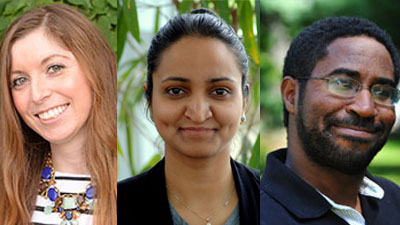ICT4D or Technology Graves? Exploring ICT lifecycle management in development projects
December 30, 2015

By Jenna Grzeslo, PhD student at the Pennsylvania State University
The Odaw River in Ghana runs dry. What was once the main source of water for thousands in the West African nation is now the most polluted river in the world. Apart from water waste generated in the country, truckloads of electronic waste are dumped into the river every day.
The scene is devastating. Young men and women sift through thousands of discarded mobile phones and computers in hopes of finding valuable materials to be resold. Nothing is spared. Parts are either sold or burned. Not only do these devices contain valuable plastics and metals, but they also contain numerous toxins which, when not handled properly, are a threat to the environment. But what are we doing to amend the situation?
The truth is that WE contributed to the Odaw’s destruction and are making it worse every day. In the name of technology dissemination and helping underdeveloped communities, the western world ships used or old technologies to developing nations. Unfortunately, the old phones and iPods quickly meet their end in the Odaw.
While as researchers, we do not contest the development potential of these technologies, we take a step back to understand how the academic community can help. Information and communication technologies (ICTs) have impacted communities, helped the under-privileged and most importantly provided access to information and opportunities around the world that were otherwise unavailable. Development studies using ICTs are important. We also cannot say “no” to new technologies. We are, after all, living in a technology-centric world. However, what we require is an understanding of the technology in order to explore what happens to it after it is no longer of use. As researchers who advocate for the greater use of technologies, do we understand end-of-life?
Using semi-structured interviews, our research team (Akshaya Sreenivasan, Steve Bien-Aime and myself), will pose these questions to the information and communication technology for development (ICT4Ds) academic community as well as practitioners, exploring their views on ICT lifecycle management. So, who is responsible for the lifecycle management and safe disposal of ICTs?

